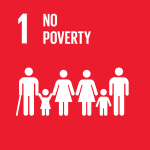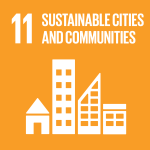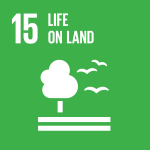Photo:
Approximately 70 percent of Somalis are dependent on climate-sensitive agriculture and pastoralism. As floods and droughts become more severe and frequent in Somalia, there is a need to find approaches that can reduce the sensitivity of farmers and pastoralists to increasing rainfall variability. With natural resource degradation also rampant throughout Somalia, most notably for the production of charcoal, Somalia is becoming increasingly vulnerable to conflicts over scarce resources.
Climate change and resource scarcity are exacerbated by the absence of policies on land-use and disaster risk management at the national level. At local levels, communities lack the financial, technical and informational resources needed to build their resilience to climate change as well as the knowledge of how to prepare for extreme weather impacts. Women especially in rural areas are one of the most vulnerable groups in Somalia. Within the women-headed households, women are traditionally responsible for growing food, gathering fuel and water, cooking, and raising children. The division of labour, along with unequal access to both material and non-material resources, and diminished participation for women in decision-making in political and private spheres increases their vulnerability against the impacts of climate change.
With financing from the Global Environment Facility’s (GEF) Least Developed Country Countries Fund, this project (2014-2022) - implemented in the semi-autonomous states of South West State, Galmudug State, Puntland, and Somaliland, which unilaterally declared itself an independent republic in 1991 - focused on bolstering the resilience of vulnerable communities and ecosystems to climate change. The project sought to respond to the adverse impacts of climate change and improve the adaptive capacity of vulnerable farmers in pilot areas and the ecosystems on which they depend.
- Image

- Image

- Image

- Image

- Image

- Image

Expected outcomes
Component 1: Enhancing Policies, Institutional Frameworks and Government Capacities
1.1 Policies, plans and tools reviewed, revised, developed, adopted and implemented by government to mainstream and enhance adaptive capacity and mitigate the risks of climate change on vulnerable communities and critical ecosystem services
Component 2: Piloting Ecosystem Based Adaptation strategies
2.1 Models of community and ecosystem resilience developed and implemented in pilot areas selected in consultation with government and community stakeholders.
Project details
Levels of intervention
- Community
- District
- National
Source of funds
- Global Environment Facility - Least Developed Countries Fund
Key implementers
- Local Governments
- National Governments
- Non-Governmental Organizations
- United Nations Development Programme (UNDP)
Funding amounts
Project partners
- Government of Somalia
- Global Environment Facility (GEF)
- United Nations Development Programme (UNDP)
Project dates
Introduction
Approximately 70 percent of Somalis are dependent on climate-sensitive agriculture and pastoralism. As floods and droughts become more severe and frequent in Somalia, there is a need to find approaches that can reduce the sensitivity of farmers and pastoralists to increasing rainfall variability. With natural resource degradation also rampant throughout Somalia, most notably for the production of charcoal, Somalia is becoming increasingly vulnerable to conflicts over scarce resources.
Climate change and resource scarcity are exacerbated by the absence of policies on land-use and disaster risk management at the national level. At local levels, communities lack the financial, technical and informational resources needed to build their resilience to climate change as well as the knowledge of how to prepare for extreme weather impacts. Women especially in rural areas are one of the most vulnerable groups in Somalia. Within the women-headed households, women are traditionally responsible for growing food, gathering fuel and water, cooking, and raising children. The division of labour, along with unequal access to both material and non-material resources, and diminished participation for women in decision-making in political and private spheres increases their vulnerability against the impacts of climate change.
With financing from the Global Environment Facility’s (GEF) Least Developed Country Countries Fund, this project (2014-2022) - implemented in the semi-autonomous states of South West State, Galmudug State, Puntland, and Somaliland, which unilaterally declared itself an independent republic in 1991 - focused on bolstering the resilience of vulnerable communities and ecosystems to climate change. The project sought to respond to the adverse impacts of climate change and improve the adaptive capacity of vulnerable farmers in pilot areas and the ecosystems on which they depend.



Project details
Green shoots of peace and development are emerging in Somalia, after a particularly difficult period of instability. UNDP is at the forefront to help the people of Somalia to recover from years of conflict, while setting the country on the path to sustainable development. In recent years, Somalia has experienced changes in weather and climate that are affecting the country’s economic and social development. Facing increasing uncertainty for seasonal and annual rainfall levels, rising surface temperatures, sea level rise, and the loss of lives and livelihoods dependent on fragile or over-exploited ecosystems and natural resources, there is concern that future climate changes could exacerbate displacement in the region and intensify conflict over scarce natural resources, including water.
Approximately 70% of Somalis are dependent on climate-sensitive agriculture and pastoralism. As floods and droughts become more severe and frequent in Somalia, there is a need to find approaches that can reduce the sensitivity of farmers and pastoralists to increasing rainfall variability. To address these issues, LDCF financing will be used to support ministries, districts, NGOs/CBOs to integrate climate change risks in Natural Resource Management and disaster preparedness. Climate risk management will be institutionalized from national to local levels. CBOs will be revitalized to take the lead on implementing community-based Ecosystem-based flood preparedness and other adaptation measures.
- Community
- District
- National
- Local Governments
- National Governments
- Non-Governmental Organizations
- United Nations Development Programme (UNDP)
Communities in the selected areas in South West State, Galmudug State, Puntland, and Somaliland - especially small-scale farmers
- Government of Somalia
- Global Environment Facility (GEF)
- United Nations Development Programme (UNDP)
News
Reports & publications
Videos & multimedia
Links
Newsfeed
Contacts
- UNDPTom Twining-WardRegional Technical Advisor












